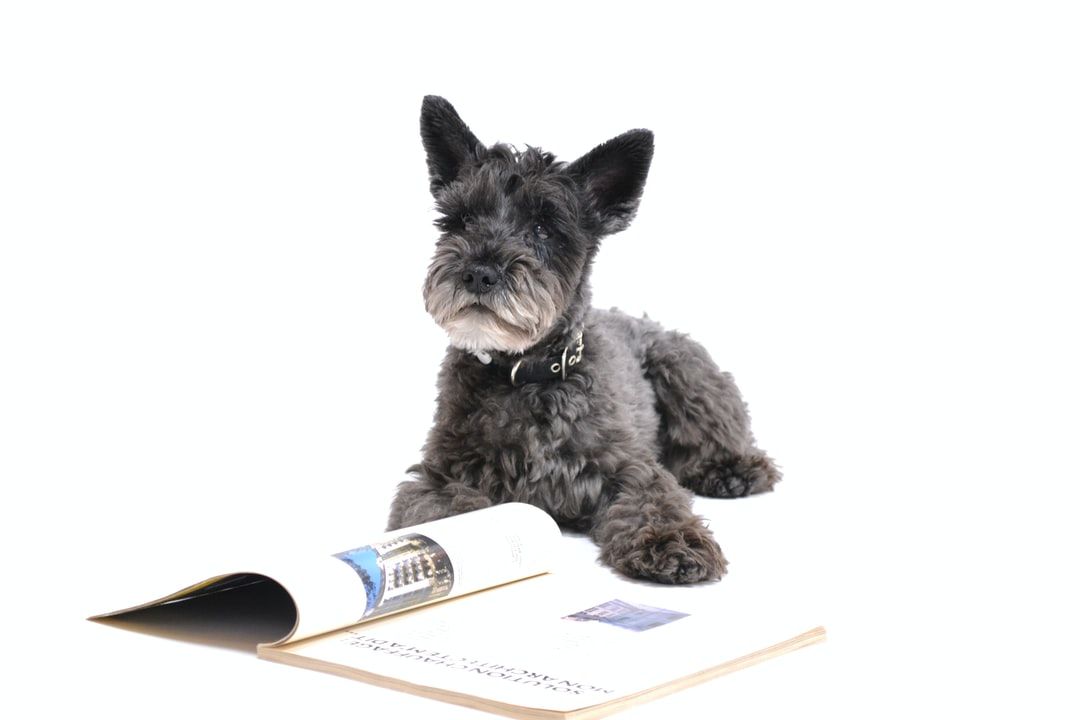We get asked this question quite a lot at Canine Principles and I’m not surprised, it’s such a confusing topic.
Dog training and behaviour is currently a self-regulated profession. Unlike veterinary nursing and veterinary science plus most human healthcare professions, no one organisation regulates dog training and behaviour.
Currently in the eyes of the law in the UK and most other places, anyone can call themselves a professional dog trainer or behaviourist, which many do. The dog trainer/behaviourist label is used whether the methods they practice are science based and empathetic or force based and dated (for example the long-disproven - and frankly rubbish - dominance theory).
And the scary thing is that in the eyes of vulnerable dog guardians a professional dog trainer is a dog expert.
Our Responsibility to You
Lack of regulation also means that accreditation of dog training and behaviour courses are (legally) self-regulated by the provider of the courses. When courses are provided for study, whether for guardians or professionals, the provider is responsible for ensuring the content is accurate.
As education providers there are measures we can take in order to self-regulate and ensure that we are providing the most valuable experience to dog people and therefore are most likely to be able to help dogs.
Gain a second opinion on our courses through external accreditation. Accreditation isn’t always equal though and that’s where things become hazier still. Some organisations check materials thoroughly and have a good reputation within different industries, while others take money and offer a badge in return. It is our responsibility as course providers to earn the highest quality accreditation for our courses so that your education is worth as much as possible, not only in content and quality of learning but also in reputation.

Your Responsibility to Dogs and Their People
As canine professionals there are measures we can take which ensure high standards of knowledge and self-regulation, which make sure we are best placed to help people and their dogs:
- You can learn from as many reputable sources as possible, a reputable source is science based and ethical. While you can choose who we learn from based on how you find their teaching style, we should always choose sources that are based in scientific awareness and not opinions or bad science.
- You should also carry out regular Continuation of Professional Development. Dogs are being studied more and more every year at the moment, there’s always something new to learn so if you don’t keep up, you risk your knowledge becoming out of date.
Concerning Factors of an Unregulated Industry
Any self-regulated industry is open to abuse. Sometimes organisations accredit their own courses, or they create a membership option which accredits the courses that they provide; often not being completely transparent that the same person or people own the private course company and the private (payment based) membership organisation that accredits the course.
It can often take digging to work that out, this type of thing happens within organisations who teach science and kindness and those who teach dated or incorrect methods. The only advice I can give you here is to research fully before you commit to anything at all. Ask many questions, check out accreditation organisations, make sure that accreditation is earned through merit and not just purchased.
It can often take digging to work that out, this type of thing happens within organisations who teach science and kindness and those who teach dated or incorrect methods. The only advice I can give you here is to research fully before you commit to anything at all. Ask many questions, check out accreditation organisations, make sure that accreditation is earned through merit and not just purchased.
Politics are another confusing factor in the dog industry at the moment. There has been a huge increase in online canine course provision over the last two years, which is amazing in most parts It’s fantastic to see so many positive and science-based dog professionals offering their unique teaching skills to people who need it. It’s great that people feel strongly enough about the ethical side of dog behaviour to put themselves out there and teach the facts. Unfortunately though this has also led to unhelpful behaviour.
We are seeing an increase in professionals who are pointing fingers and instead of minding their own business, course providers are rather embarrassingly criticising each other directly and indirectly - and doing so in language that is even more confusing to people who just want to get a solid, science-based and valuable education.
We are seeing an increase in professionals who are pointing fingers and instead of minding their own business, course providers are rather embarrassingly criticising each other directly and indirectly - and doing so in language that is even more confusing to people who just want to get a solid, science-based and valuable education.

Finding the Right Dog Course for You
The right course for you will really depend on what you want to do. If you’re in England or Wales it’s worth considering an Ofqual accredited dog behaviour or training course because that will future proof your qualification.
As animals and animal welfare are being addressed regularly by government in the UK, regulation will eventually happen. When it happened for dog carers working professionally the qualification they needed was Ofqual. So it stands to reason that when the training and behaviour profession will go along the same route eventually. If you’re outside the UK and want to learn the profession from the ground up, Ofqual courses will still stand you in good stead and because they had to pass a lot of assessment to be delivered, they will meet high standards.
As animals and animal welfare are being addressed regularly by government in the UK, regulation will eventually happen. When it happened for dog carers working professionally the qualification they needed was Ofqual. So it stands to reason that when the training and behaviour profession will go along the same route eventually. If you’re outside the UK and want to learn the profession from the ground up, Ofqual courses will still stand you in good stead and because they had to pass a lot of assessment to be delivered, they will meet high standards.
Any other course available can be considered Continued Professional Development. Some courses are externally accredited by CPD offices, of which there are a lot now being offered. CPD is actually also a self-regulated industry, so not all CPD assessors are the same, so if you’re checking out a CPD accredited course, look for the other clients trusted by the CPD provider and check their general reputation.
Other accreditations for CPD courses are accreditations by private companies who offer bespoke accreditation of courses. For example NCFE or UK Rural Skills offering course checking services, but not for an Ofqual qualification, but a privately accredited qualification. This type of accreditation usually does mean high learning standards but with one big difference, they are not on the National Qualifications Framework – so if you’re in England and Wales you can’t usually use them as prior study evidence if you wanted to carry out further courses on the NQF.

Dog Behaviour Courses – What Do They Teach?
This is a vitally important point, what do the courses you are looking at teach? Are they caught up and current with dog science? Do they only teach facts? It might sound strange but there are courses available even now which teach disproven theory, punishment and that we need to be dominant over dogs to teach them. None of these things are true or relevant to dog science, yet there are courses which teach these things as if they are facts when they are in fact damaging and opinion based. Dog science has exploded over the last few decades, studies are all leaning towards true understanding, empathy and welfare. This includes teaching with positive reinforcement and knowing why we make the choice to do that.
What About Dog Behaviour Course Levels?
Dog training and behaviour courses seem to trigger a preoccupation with levels. Any course that isn’t on the National Qualifications Framework (Ofqual) which also has a level attached to it is usually an in house created level system.
The nature of giving an idea of study level means that you can choose a course you’re comfortable with. Ethically the use of levels should either be worded as “aimed at study level” to help you make a decision about whether the course is the right one for you or “NQF level” otherwise it’s easy to be drawn in to assume that the mention of levels means that the course is on the NQF when they are not.
The nature of giving an idea of study level means that you can choose a course you’re comfortable with. Ethically the use of levels should either be worded as “aimed at study level” to help you make a decision about whether the course is the right one for you or “NQF level” otherwise it’s easy to be drawn in to assume that the mention of levels means that the course is on the NQF when they are not.

Should I Join A Membership Organisation For Dog Trainers?
That’s completely up to you. There are many amazing membership organisations out there with ethical motivation.
Like all membership organisations though (and all dog training and behaviour courses) it’s important to look deep and check that the member fee is worth what you get in return. A badge for your website and access to a small social media group might be all you get for a hefty fee, or you could have those things and access to lots of learning experiences and support, plus the organisation’s standards might mean you can only be a member if you produce an agreed amount of study evidence during your membership.
Again (and I know I keep saying it) look deep before buying.
Like all membership organisations though (and all dog training and behaviour courses) it’s important to look deep and check that the member fee is worth what you get in return. A badge for your website and access to a small social media group might be all you get for a hefty fee, or you could have those things and access to lots of learning experiences and support, plus the organisation’s standards might mean you can only be a member if you produce an agreed amount of study evidence during your membership.
Again (and I know I keep saying it) look deep before buying.
At Canine Principles we provide CPD and NQF courses. We initially were only CPD based but so many of our students wanted to study Ofqual courses, so we created them and had them accredited. All of our courses and workshops are science based and kind.
Whatever you choose, choose carefully and research well. Remember that all accreditations are not equal, that course names are part of marketing and most of all remember to check out for yourself, how the qualification you choose will serve you not only to learn the best skills and knowledge but also to serve you best in the future.
Start Your FREE Skill-Hub Trial Today
Commitment Free 3 Day Access
Canine Principles' Skill-Hub allows unlimited* access to ALL self-study courses, workshops & webinars.
*Requires Monthly Subscription. See Skill-Hub Subscription Page For Details.

